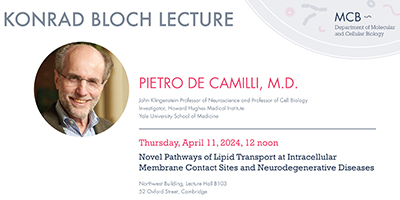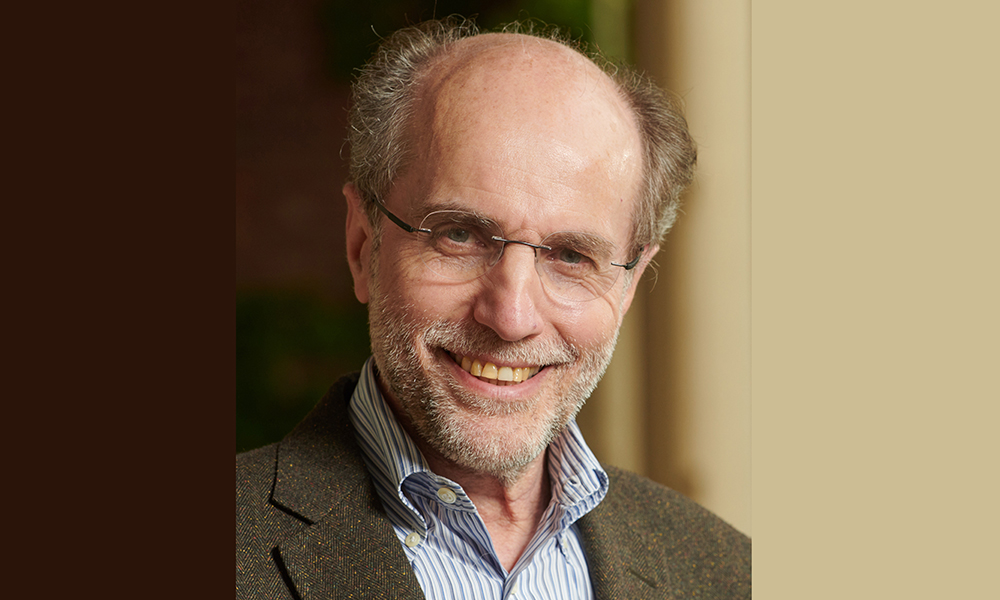This year’s Bloch lecture will be delivered by HHMI Investigator Pietro de Camilli whose research centers on neuronal cell biology in health and disease.
At Yale University, where he is the John Klingenstein Professor of Neuroscience, Professor of Cell Biology, and founding director of the Program in Cellular Neuroscience, Neurodegeneration and Repair, Prof. de Camilli studies the dynamics of neuronal cell membranes, particularly at synapses. His research has provided fundamental insights into the mechanisms of membrane fission and recycling. His discovery and characterization of the role of phosphoinositide metabolism in the control of endocytosis have broad implications in the fields of phospholipid signaling and of membrane traffic, not just at neuronal synapses. His studies of synapses have contributed significantly to the elucidation of pathogenetic mechanisms of human diseases, with recent emphasis on Parkinson’s disease.
Prof. de Camilli is the recipient of numerous awards, most recently the van Deenen Medal from the Institute of Biomembranes at Utrecht University, Netherlands and the Ernst Jung Gold Medal for Medicine and the E.B. Wilson Medal from the American Society for Cell Biology. He is an elected member of the US National Academy of Sciences, US National Academy of Medicine, American Academy of Arts and Sciences, and the Italian Academy of Sciences.
About the Konrad Bloch Lecture
The author wishes to express his gratitude to Prof. Guido Guidotti for reviewing the text for accuracy.
by Jim Henle



